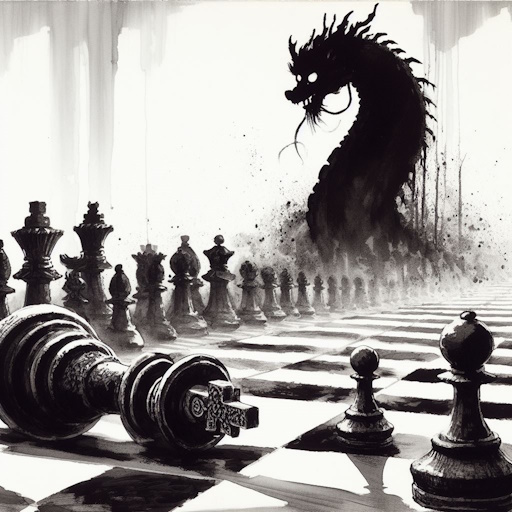Backrank mate (1 move)
Master this and many more motifs
systematically with
Puzzle Academy

Explanation
The back-rank is called "weak" if no major pieces (rook or queen) are protecting it.
The king starts on the back-rank and usually stays there until the endgame. An unprotected back-rank allows the opponent's heavy pieces (queen and rooks) to attack the king from the side, leading to a forced back-rank mate, or winning material.
Examples
Black can deliver back-rank mate with Rb1#. The rook gives check, and the king cannot escape because the pawns on g2 and h2 block the escape squares.
Sometimes other pieces can help with the back-rank mate:
Here white can deliver back-rank mate with Rd1#. The queen on e5 guards the escape square h2, and the pawn on e3 guards f2.
Back-rank mate is rare in the opening, because you need some open lines, but it is possible - as in the following example after only seven moves:
The queen can give back-rank mate with Qc1#.
Pattern matching
The opponent's king is on the back-rank, with the escape squares on the next rank being blocked or controlled by your pieces. The back-rank is unprotected, protected insufficiently, or the pieces protecting it can be lured away.
Related patterns
If the checkmating rook is adjacent to the king and protected by a bishop, we get the Opera mate, or Mayet's mate.
A similar checkmate can happen on the a or h-file instead of the back-rank, see "high-striker mate".